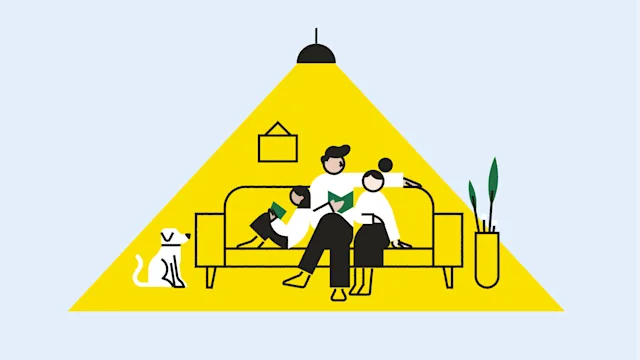It’s normal to have nerves before your first session of couples therapy. It doesn't matter if your first session is approaching, or if you’re still hesitant about signing up. Either way, knowing what to expect at couples therapy may help calm your nerves. In fact, you might even realize it’s not as scary as you’ve been imagining.
“A helpful analogy to get a better feel for couples therapy is the experience of getting a tune up for your car,” says Rob Scheidlinger, LMFT, JD, a licensed marriage and family therapist in Camarillo, CA. “It’s an opportunity for a professional to look under the hood and work directly with you on the mechanics of relationship repair.”
Sure, you may delve into some uncomfortable topics, but the first session is more about meeting your therapist or psychologist and getting comfortable. In general, here’s what to expect at couples therapy during your first session.
1. Your therapist will set the tone.
“The goal of the first session in couples therapy is to establish and enhance rapport between clients and their therapist,” says Scheidlinger.
This may start like any relationship, with chatting and getting more comfortable. For example, your therapist will give you a chance to share what brought you to couples therapy. This can help you get on the same page.
“Rules of therapy ... are all typically discussed during the first session,” says Scheidlinger. For example, you may discuss confidentiality, or how to handle secrets. A "no secrets policy" means the therapist will not keep secrets said by one member of the couple about the other, and “will communicate everything that is said to the other partner.”
Note that marriage and family therapists may use a variety of methods to help you. Some therapists may take a more structured approach, while others are more experiential. Your therapist may use handouts and homework, while others may focus their efforts on the conversation and dynamic in the session.
2. Your therapist will start learning more about you.
This may include talking about your relationships—and not just the one with your current partner. You might talk a little bit about your childhood relationships and family history (a.k.a., your “attachment history”). This may help reveal to your therapist how you form bonds with others, which can help improve your current relationships.
Additionally, your therapist may lead the two of you through different exercises meant to strengthen your skills in therapy. These may be exercises to help you relax (such as a breathing exercise to reduce stress hormone levels) or to help launch a conversation.
3. You’ll get a chance to reflect on the session.
“At the end of the first session, generally therapists will ask clients questions about the experience they just participated in,” says Scheidlinger. For example, your therapist may ask for your feedback about the experience, such as how you felt about the structure, your comfort, or the rules. You might have small suggestions that could greatly improve your experience and meet your needs, so don’t be shy.
Additionally, your therapist is a professional, but that doesn’t mean they are the professional for you. At the end of the session, you might decide that this therapist isn’t a good fit for you—and that’s okay. They will ask you if you would like to return for another session or schedule recurring sessions, and you’re totally allowed to say “no.”
It’s normal to be anxious about couples therapy, or to tell a stranger about your personal life. However, the payoff may be substantial for you and your partner. “For most serious relationships, the ability to have an empathic professional focus on each of you with their undivided attention … is an affordable luxury,” says Scheidlinger.
What do you have to lose? Says Scheidlinger, “The least positive result would be not having a second session.”
References

Why trust our experts?














